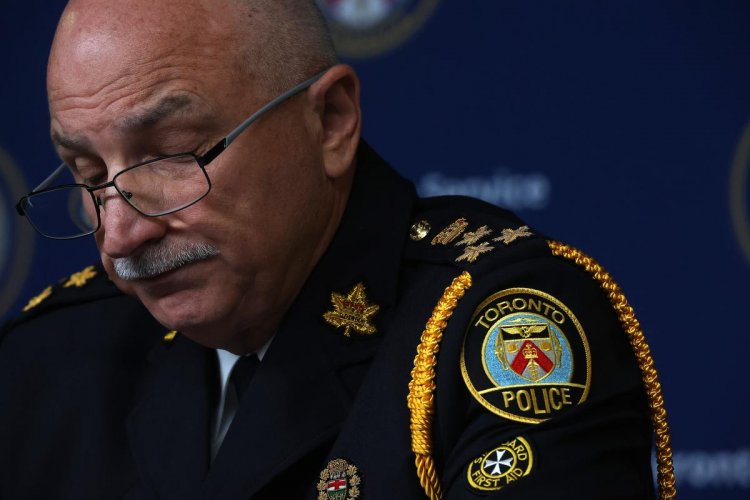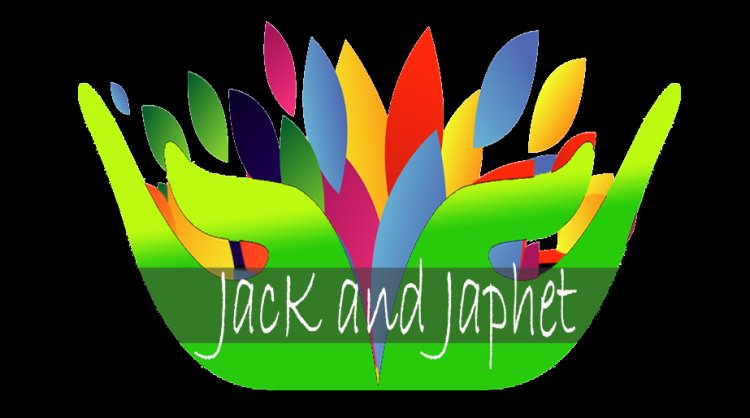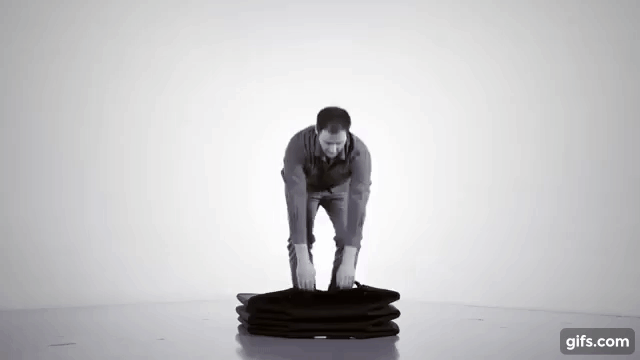Black Toronto voices reject TPS apology for ‘systemic’ discrimination: ‘How many people are going to die between this apology and the next?’
There was no more denying it. After their own statistics confirmed officers use force against Black people at alarming and disproportionate rates, Toronto police released a landmark report documenting systemic discrimination within the force — prompting a solemn apology from the city’s police chief and an outcry from Black Torontonians demanding accountability. “Results have confirmed what for many decades racialized communities — particularly the Black and Indigenous community — have been telling us: That they are disproportionately over-policed,” Toronto police chief James Ramer said at a news conference Wednesday.“As Chief of Police, and on behalf of the Service, I am sorry and I apologize unreservedly,” the city’s top police official said. Ramer’s apology came with the release of never-before-seen statistics breaking down, by race, the people who are subjected to officer force and strip searches in 2020. The numbers — drawn from the force’s own records and analysis — revealed a stark racial disparity, including that Black residents were subject to officer force at rates five times higher than white ones, and four times their share of the population.A Toronto police officer was also more than twice as likely to draw a firearm on a Black person who they thought was unarmed than a white person they thought was unarmed.But with an apology landing now — after decades of Black Torontonians decrying overpolicing and countless reports and judicial reviews calling out disproportionate use of force by cops — the chief’s words rang hollow for many. “How many people are going to die between this apology and the next?” asked Sam Tecle, a youth and community advocate and assistant professor of sociology at Toronto Metropolitan University.Ramer vowed the release of the numbers would prompt change — “apologies alone are not sufficient,” he said. He announced more than three dozen next-steps to address discrimination within the force, including a move to collect and analyze data on far more police interactions, including arrests, mental health calls and youth diversion cases. Defining the problem as “systemic,” however, Ramer said Toronto police will not be crunching the data to reveal the identities of any individual officers — a move loudly decried by a chorus of Black Toronto voices Wednesday.Although interpreted by some as a “welcome first step,” others swiftly rejected Ramer’s apology, saying the problem cannot merely be defined as “systemic” and his words were coming too little too late.“What we have asked for you to do is to stop — to stop brutalizing us, to stop killing us, to stop carding us,” said Beverly Bain, an assistant professor at the University of Toronto and member of the group No Pride in Policing, who took the microphone at Wednesday’s press conference to speak directly to the chief.“Chief Ramer, we do not accept your apology,” she said.Many blasted Toronto police for failing to examine the data to root out individual problem officers. Asked repeatedly why the force was turning a blind eye to that data, Ramer said the requirements to anonymize the statistics were made in Ontario’s Anti-Racism Act and the Toronto police board’s race-based data policy.“It’s about systemic racism, it’s not about the acts of individuals,” Ramer said, noting there are other mechanisms — including whistle-blowing by fellow officers — to deal with officer misconduct such as racist comments.That choice is “an enormous shortcoming of the policy,” said Akwasi Owusu-Bempah, an assistant professor of criminology at the University of Toronto who researches policing and race. Owusu-Bempah said he believed the move was being taken to “placate” the police officer’s association.Jon Reid, president of the Toronto Police Association, said the data “cannot be disputed,” and called the results disappointing, but also said they “leave more questions than answers, including why disparities exist or what factors could have led to an encounter with police in the first place.” Reid also called on the Toronto police to fast-track initiatives aimed at “more thorough data collection.”Black Lives Matter Canada organizer Sandy Hudson said failing to examine officer actions shows “a faulty understanding of how systemic racism works.”“Systemic racism creates environments where overt acts are possible,” she said.Notisha Massaquoi, who helped developed the Toronto police board’s policies on race-based data collection, agreed, saying: “You have to show me, or show Black communities, how you’re going to be disciplining officers.”Massaquoi noted that the Black community has been talking, for many years, about being over-policed, about the disproportionate use of force, about strip searches.“I think it’s insulting to say, ‘Now we believe the Black community,’ ” she said.Toronto decision-makers weighed in following the data release Wednesday, with Mayor John Tory, also a member of the police services board, saying they were “committed to the reforms underw


There was no more denying it. After their own statistics confirmed officers use force against Black people at alarming and disproportionate rates, Toronto police released a landmark report documenting systemic discrimination within the force — prompting a solemn apology from the city’s police chief and an outcry from Black Torontonians demanding accountability.
“Results have confirmed what for many decades racialized communities — particularly the Black and Indigenous community — have been telling us: That they are disproportionately over-policed,” Toronto police chief James Ramer said at a news conference Wednesday.
“As Chief of Police, and on behalf of the Service, I am sorry and I apologize unreservedly,” the city’s top police official said.
Ramer’s apology came with the release of never-before-seen statistics breaking down, by race, the people who are subjected to officer force and strip searches in 2020.
The numbers — drawn from the force’s own records and analysis — revealed a stark racial disparity, including that Black residents were subject to officer force at rates five times higher than white ones, and four times their share of the population.
A Toronto police officer was also more than twice as likely to draw a firearm on a Black person who they thought was unarmed than a white person they thought was unarmed.
But with an apology landing now — after decades of Black Torontonians decrying overpolicing and countless reports and judicial reviews calling out disproportionate use of force by cops — the chief’s words rang hollow for many.
“How many people are going to die between this apology and the next?” asked Sam Tecle, a youth and community advocate and assistant professor of sociology at Toronto Metropolitan University.
Ramer vowed the release of the numbers would prompt change — “apologies alone are not sufficient,” he said.
He announced more than three dozen next-steps to address discrimination within the force, including a move to collect and analyze data on far more police interactions, including arrests, mental health calls and youth diversion cases.
Defining the problem as “systemic,” however, Ramer said Toronto police will not be crunching the data to reveal the identities of any individual officers — a move loudly decried by a chorus of Black Toronto voices Wednesday.
Although interpreted by some as a “welcome first step,” others swiftly rejected Ramer’s apology, saying the problem cannot merely be defined as “systemic” and his words were coming too little too late.
“What we have asked for you to do is to stop — to stop brutalizing us, to stop killing us, to stop carding us,” said Beverly Bain, an assistant professor at the University of Toronto and member of the group No Pride in Policing, who took the microphone at Wednesday’s press conference to speak directly to the chief.
“Chief Ramer, we do not accept your apology,” she said.
Many blasted Toronto police for failing to examine the data to root out individual problem officers. Asked repeatedly why the force was turning a blind eye to that data, Ramer said the requirements to anonymize the statistics were made in Ontario’s Anti-Racism Act and the Toronto police board’s race-based data policy.
“It’s about systemic racism, it’s not about the acts of individuals,” Ramer said, noting there are other mechanisms — including whistle-blowing by fellow officers — to deal with officer misconduct such as racist comments.
That choice is “an enormous shortcoming of the policy,” said Akwasi Owusu-Bempah, an assistant professor of criminology at the University of Toronto who researches policing and race. Owusu-Bempah said he believed the move was being taken to “placate” the police officer’s association.
Jon Reid, president of the Toronto Police Association, said the data “cannot be disputed,” and called the results disappointing, but also said they “leave more questions than answers, including why disparities exist or what factors could have led to an encounter with police in the first place.” Reid also called on the Toronto police to fast-track initiatives aimed at “more thorough data collection.”
Black Lives Matter Canada organizer Sandy Hudson said failing to examine officer actions shows “a faulty understanding of how systemic racism works.”
“Systemic racism creates environments where overt acts are possible,” she said.
Notisha Massaquoi, who helped developed the Toronto police board’s policies on race-based data collection, agreed, saying: “You have to show me, or show Black communities, how you’re going to be disciplining officers.”
Massaquoi noted that the Black community has been talking, for many years, about being over-policed, about the disproportionate use of force, about strip searches.
“I think it’s insulting to say, ‘Now we believe the Black community,’ ” she said.
Toronto decision-makers weighed in following the data release Wednesday, with Mayor John Tory, also a member of the police services board, saying they were “committed to the reforms underway to make sure everyone in our city receives fair and unbiased policing.”
Coun. Michael Thompson, a former member of the board and the city’s only Black councillor, said in a statement the apology was a “welcome first step” but that it is “just noise unless it is backed by sustained, concrete and systematic actions to dismantle the Police Service’s failed strategies and institute new approaches free from embedded racism.”
City council is responsible for approving the police’s more-than $1-billion police budget and has been criticized for putting policing resources before community-led programs. For example, a majority of council members, including Tory and Thompson, rejected a motion to take just $10 million of the money allocated to policing in 2022 and spend it instead on making housing more affordable.
Police services across Ontario were mandated by the province in 2019 to begin documenting a person’s perceived race in officers’ use of force reports. These reports — which are required whenever an officer uses physical force requiring medical attention, deploys a TASER, or draws or points their firearm — are the basis of some of the statistics released Wednesday.
As part of the release of the report Wednesday, Toronto police also provided a list of 38 action items alongside the data — six of which they claimed had already been “completed” at the time of publishing, including improving the audit practices of items found during strip searches.
Of the items yet to be completed: holding community town halls to discuss “a path forward”; developing an Indigenous-centred report on use of force and strip searches, and consulting those community leaders; continuing to review the current training curriculum for officers; and having supervisors review all body-worn and dashboard camera footage for officers involved in use-of-force incidents.
The Toronto police announcement and apology was a marked change for the force and senior leadership, who for more than two decades have resisted acknowledging a problem of racism within the force, often challenging others who made those claims.
In 2002, then police chief Julian Fantino was repeatedly combative after the Star published a series of stories analyzing police arrest data reporters obtained through a freedom of information request that showed Black people were being disproportionately arrested or ticketed for offences like simple drug possession. “We do not do racial profiling … There’s no racism,” Fantino said in response to the findings. The following year, the police association sued the Star for $2.7 billion over the series, accusing the paper of “deplorable, inflammatory and dangerous” bias.
Subsequent reporting using more recent police data continued to show racial disparities when it came to Toronto police actions, like stopping and searching Torontonians, known as carding, especially young Black men.
Wendy Gillis is a Toronto-based reporter covering crime and policing for the Star. Reach her by email at wgillis@thestar.ca or follow her on Twitter: @wendygillis
Jennifer Pagliaro is a Toronto-based crime reporter for the Star. Follow her on Twitter: @jpags




















